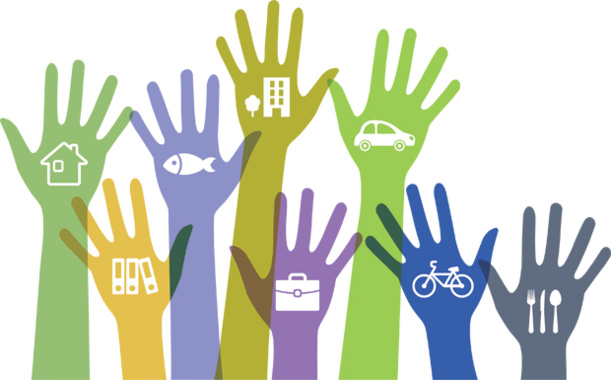Background and issues
Airbnb, Drivy, Blablacar, La Ruche qui dit Oui, Leboncoin, Techshop, FabLab, Wikipedia, Kickstarter, Coursera, etc.
The sharing economy encompasses a wide range of initiatives led by companies or associations, which are transforming the way we travel, consume, produce, finance and learn. The definition of the sharing economy is controversial, and it is emerging as a catch-all, a pipeline of innovations characterised by the use of digital technology and the desire to circumvent existing operators.

The sharing economy is the focus of a number of debates, including:
- Unfair competition,
- Tax evasion,
- Job insecurity, and so on
How to regulate this sharing economy is a key question being addressed by the public authorities.
Two other questions are equally important in this context:
-
Does the sharing economy provide new solutions to collective sustainable development challenges such as waste prevention, mobility and energy consumption?
-
And if so, what can public policy-makers do to support “public interest” initiatives?
Objectives
PICO focuses on the sharing economy for material goods and studies initiatives such as FabLabs and Repair Cafés, as well as peer-to-peer marketplaces such as LeBonCoin, in order to analyse:
-
The environmental and social motives of entrepreneurs and users,
-
The current impacts of these five peer-to-peer platforms for goods exchange,
The role that public authorities could play in supporting the most promising business models for a circular economy.
Annexes of the final report
In french for most of them
- L’économie collaborative : Fondements théoriques et agenda de recherche [PDF - 746 Ko]
- Les mondes de l’économie collaborative : Une approche par les modèles économiques [PDF-976 Ko]
- La place des enjeux sociaux et environnementaux dans la consommation collaborative : Le point de vue des usagers
- Obsolescence : Ce qu’en disent les consommateurs [PDF-737 Ko]
- Sustainability of collaborative consumption in question: When second-hand peer-to- peer platforms stimulate green consumers’ impulse buying and overconsumption[PDF-849 Ko]
- Ce qui circule entre nous en ligne [PDF-746 Ko]
- Processus de cession d’objets sur Internet : une analyse par la socialité des acteurs [PDF-729 Ko]
- Pour de nouveaux partenariats entre les pouvoirs publics et l’économie du partage [PDF-752 Ko]




